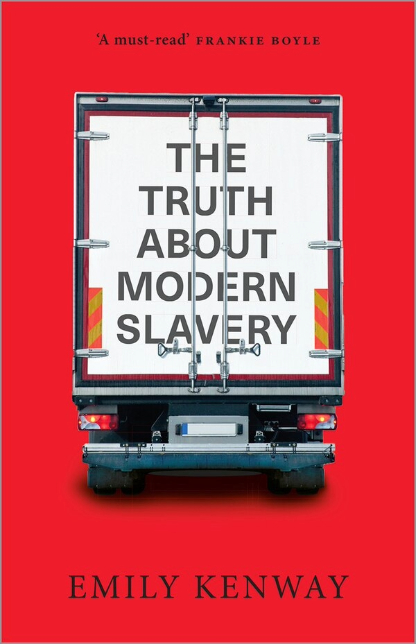Except for Palestine: The Limits of Progressive Politics, Marc Lamont Hill and Mitchell Plitnick, The New Press, 2021, pp. 227, ISBN: 978-1-62097-592-3
In the early hours of August 2013, the world stood in outrage as Assad’s regime used sarin gas to attack the opposition-held suburbs of Damascus, killing hundreds of civilians. Fundraisers, programs and actions are orchestrated targeting food insecurity in Yemen, where since the outbreak of the war with Saudi Arabia, almost one-third of the population has gaps in their diet. The southern border of the United States, where border guards separate families and detain children without their guardians, among other inhumanities, has long been a rallying cry in the self-styled progressive communities. This particular community further sings the praises of free speech, enshrined in the First Amendment to the US Constitution.
Yet, when Israel rained white phosphorus on Gaza during Operation Cast Lead in 2009, exploding the chemical that cannot be extinguished by water over civilian areas, this same progressive community stood united in “Israel’s right to defend itself.” Even if seven out of ten people in Gaza are food insecure and the population’s survival depends on NGOs’ continued support, Palestine is not granted the same place in progressive circles as other issues. Save the Children, a UK-based NGO advocating for youth rights, consulted 470 children from across the West Bank who Israel has detained in the past ten years and found that the majority of these children were taken from their homes at night, blindfolded, and were not provided with the reason for their detention. Others were arrested on their way to school. The most common charge laid against them, stone-throwing, carries a potential sentence of up to 20 years in jail. Palestinian children are the only ones in the world prosecuted through a military justice system. Yet, the self-styled progressive politicians continue to ally themselves to any government in power in Israel. To speak nothing of continued attempts to stifle criticism of Israeli government policies by targeting, denouncing and labelling activists as anti-Semitic or promoting violence.
In their new book, Except for Palestine, Marc Lamont Hill and Mitchell Plitnick examine official political and media spaces, pointing out the limits of progressive politics in the US. Interrogating political structures, logic, and institutional arrangements in the US, they note how Palestine is always exceptionalized and Palestinian rights and justice marginalized through a process of dehumanization of Palestinians. They argue that the Palestine exception undermines the universality of progressive politics and exposes the moral bankruptcy of those willing to fight for justice for everyone but the Palestinians.
In the mainstream liberal discourse, it has become somewhat of a mantra to continually affirm Israel’s right to exist. As Lamont Hill and Plitnick note, this continued demand for recognition is always and only demanded of Palestinians and no other state. This has recently changed to the demand to recognize Israel’s “right to exist as a Jewish state.” The demanding of the Palestinians to recognize Israel’s right to exist cynically frames the question as a zero-sum game. The support and affirmation of Palestinian rights are equated to the denial of Jewish self-determination. This dishonest framing distracts and attempts to justify Israel’s abuse of Palestinian rights as a necessary condition for the nation’s survival while also silencing those who advocate for Palestinians and criticize Israeli actions by interpreting Palestinian activism as an existential risk to the state and its citizens. The authors justly pose the question of whether Israel, in fact, faces existential threats. The authors argue that Israel stands in the Middle East as one of the most stable nations, built along liberal-capitalist values, but since much of that stability is built on the continued occupation and oppression of Palestinians, the demand for affirming “the right to exist” is in effect the demand for Palestinians to acquiesce to their own dispossession. While it is, rightly, an indisputable fact that Israel exists and has the right to, Palestinians are not accorded the same right. In fact, no country other than Israel demands others to recognize its character. Its citizens rather than foreign states affirm its character.
Moreover, with the passing of the Nation-State Bill in 2018, the discrimination against Palestinian citizens of Israel was codified in the basic structure of the state. Lamont Hill and Plitnick quote Palestinian activist Omar Barghouti, who suggested that from now on, “it will not just be legal to racially discriminate against the indigenous Palestinian citizens of the state. it will be constitutionally mandated and required.” The shameless demand for recognition seeks to force Palestinians to affirm and accept the denial of their own rights not only to self-determination but to equality.
Successive US administrations failed to balance the inequality in power between Israelis and Palestinians while presenting themselves as honest and objective brokers. Continued military, economic and political support by the US ensured Israel’s good standing in the world. However, it was not until the Trump presidency that the façade of objectivity fell apart. Trump did what other Presidents promised to do in their campaigns but failed to actually follow through on those promises. He recognized unified Jerusalem as the sole and eternal capital of the State of Israel; recognized Israeli sovereignty over the Golan, and cut the funds to UNRWA, the agency tasked with supporting Palestinian refugees from 1948 and their families, in an attempt to remove the issue of refugees from the negotiating table. Lamont Hill and Plitnick show that Trump’s policies were not exceptional but simply a continuation of policies of other administrations. What Trump revealed was the limitation of progressive politics towards Palestine. No progressive, bar the meek protests from Bernie Sanders and more powerful ones from the newly elected Congresswomen Rashida Tlaib and Ilhan Omar, protested Trump’s decisions. Upon taking office, Joe Biden, who called himself “the most progressive president in US history,” refused to reverse any actions Trump took, leaving Palestinians in an even more inferior position to negotiate a future peace deal than before.
In Except for Palestine, Marc Lamont Hill and Mitchell Plitnick focus their analysis on official US politics, members of the Congress and the Senate and their legislation. Examining the deafening silence of self-styled progressives, the authors turn their attention to Boycott, Divestment and Sanctions (BDS) movement and its reception in the US. They document attempts to criminalize the non-violent resistance through legislation such as the Ribicoff Amendment in 1976, which denied tax benefits to companies complying with the Arab League boycott, and the Export Administration Act of 1977, which outright bans companies from engaging in an unsanctioned boycott by foreign states. As the authors state, the reason behind these laws was to prevent foreign companies from using US corporations as a tool of their foreign policy. However, BDS is a movement led by a loose coalition of civil rights activists, not any particular foreign state and does not seek to profit from its actions. These conditions represent the standard for protected speech under the First Amendment.
Nonetheless, the “Combating BDS Act,” introduced by Marco Rubio and passed in the Senate in 2020, allows other levels of government to enact laws against BDS previously deemed unconstitutional by federal courts. BDS is here equated to a form of economic warfare rather than political pressure. Besides legislation, administrative sanctions, false and inflammatory accusations, denunciation, and bureaucratic pressure are used to silence critics of Israeli actions in Palestine and against Palestinians.
Lamont Hill and Plitnick have written an important book that seeks to expose the limits of progressive politics. Although theoretically aligned with the core values and beliefs of the progressive community, the question of Palestine remains outside of the politically accepted causes taken up by politicians. In their book, the authors have shown that for both Israelis and Palestinians to live in peace, US support to systematic injustice and oppression must cease immediately.




